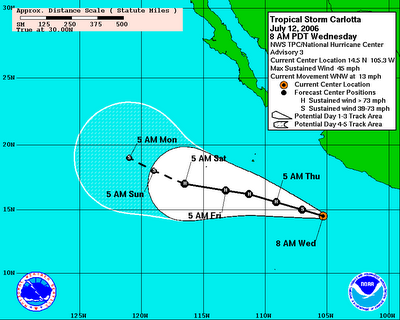 After a long day at work and a long commute, I get home to read the following disturbing news: In a study published in the June issue of the American Sociological Review, Americans’ circles of friends have radically shrunk in the past two decades, from three to two, and those who have no one with whom they can have meaningful conversations has more than doubled to one quarter of the population.
After a long day at work and a long commute, I get home to read the following disturbing news: In a study published in the June issue of the American Sociological Review, Americans’ circles of friends have radically shrunk in the past two decades, from three to two, and those who have no one with whom they can have meaningful conversations has more than doubled to one quarter of the population.The general trend is toward a smaller social network more centered on spouses. The study conducted by sociologists at Duke University and the University of Arizona found that the percentage of people who only talk to family members about important matters has increased from 57 percent to 80 percent, while the number of people who depend totally on their spouse has increased from 5 to 9 percent.
This may be looked at as promising, that family is now viewed as important. But one can also draw the conclusion that community is no longer important to the average American.
Researchers found a decline in groups that people belong to and the amount of time they spend with these organizations. Members of families spend more time at work and have less time to spend on outside activities that might otherwise lead to close relationships.
“This is really a substantial change for the last 20 years,” says Matthew Brashears, who co-authored the 2004 study. “The magnitude of this research is not a good sign.”
The study asked 1,467 Americans to name the people whom they’ve discussed important matters like gender, race, education or family ties within the last six months. This is the first study concerning social networks since the original survey in 1985, which determined the average social network for Americans consisted of 2.94—or almost three—people.
The findings do not surprise me. There is something fundamentally wrong with the way America is laid out today. Our society and infrastructure promote isolation. Everyday examples of isolation include driving around in your car all the time. Everyone’s in boxes. Everyone's shopping in huge, monolithic malls with repetitive stores. Churches were once the center of communities, sometimes with the entire congregation knowing each other. Now, new mega-churches are towns within themselves, and instead of forming a sense of community, their escalating memberships can cause more isolation.
There is an increase in the number of people who have no one, who are truly isolated. It is well known that having a friend or two keeps you alive longer. It’s a powerful quality, and indicates how likely you are to be depressed.
The Duke and Arizona study found that African-American men older than 60 have seen the biggest decline in close friendships, from 3.6 people in 1985 to 1.8 in 2004. Statistically speaking, young white guys lost the most, though, and the older white population stayed mostly the same.
Though new technology can allow people to meet online and communicate through email or instant messaging, researchers feel that these connections can’t replace friends who do favors like picking you up when your car breaks down or bringing over hot soup when you’re sick.
Bashears, who earned his undergraduate degree at Emory University, says he found “the sense of community very strong in Atlanta” compared to other places he’s lived, but he also believes that cities like Atlanta that were constructed after the rise of the automobile are structurally different from the rustbelt cities of the North and could be more isolating. Bashears says he and his colleagues are still unsure of what caused the magnitude of the drop in social circles, but believes it has to do with longer work times and commute hours.

2 comments:
Thanks. I don't read much in that topic.
Would the conversations, some of which sounded pretty intense, where, as you say "all of this was discussed and kicked around in between the meditation periods"...would any of those qualify as conversations among friends?
I have found that, by choice and by accident, a religious community of long standing can be a matrix out of which we grow effective networks of friends. [friends in the sense of of social support and close personal communication that the article discussed]
maybe we all better learn how to make quality friendships out of our online aquaintences...that seems to be overtaking every other form of socializing:
http://scienceblogs.com/clock/2006/07/new_research_on_social_network.php
http://socialsoftware.weblogsinc.com/2006/05/17/top-10-social-networking-sites-see-47-growth/
Post a Comment